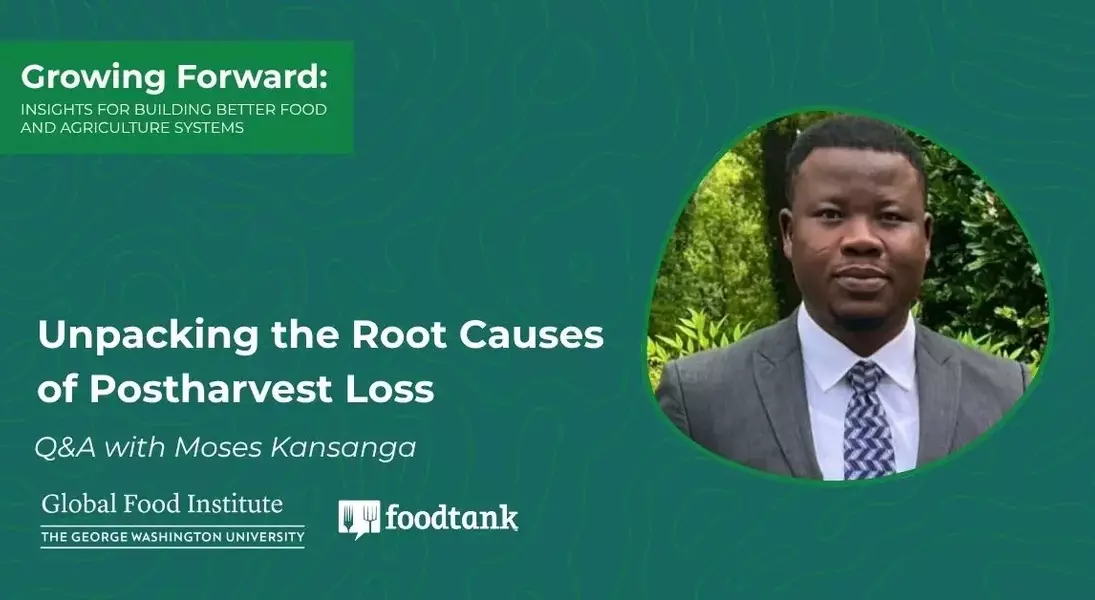
Achieving Sustainable Food Systems Requires More Than Just Infrastructure—It Demands Systemic Reform
In Sub-Saharan Africa, the struggle against post-harvest losses is not merely about inadequate storage or transportation—it reflects deeper structural challenges rooted in global trade imbalances, poverty, and inequality. Understanding these dynamics is crucial for crafting effective solutions that benefit rural farming communities and ensure long-term sustainability.
The Intersection of Geography and Agriculture: A Personal Journey
Moses Kansanga's research into food systems and post-harvest loss stems from his personal experiences growing up in northern Ghana, where food insecurity and climate change are pressing issues. His early exposure to famine and regional disparities fueled his academic pursuits in geography, equipping him with tools to analyze spatial, economic, and political inequalities.
Kansanga’s central inquiry revolves around why specific geographies continue to grapple with hunger despite advancements in agricultural techniques. His work seeks to identify methods of cultivating crops that maximize yield while preserving environmental integrity, offering a nuanced perspective on the complexities of food production.
Beyond Bandages: Tackling the Root Causes of Food Loss
Solutions aimed at reducing post-harvest losses often focus narrowly on infrastructure and technology, akin to applying superficial remedies without addressing underlying causes. Kansanga argues that true prevention necessitates confronting the political economy driving food systems. For instance, food dumping practices by wealthier nations undermine local farmers' competitiveness, exacerbating losses even when infrastructure improves.
Ghana exemplifies this dilemma as a major tomato producer importing significant quantities from the Netherlands due to subsidized produce. Such imports outcompete local farmers, leading some to abandon agriculture altogether or seek employment abroad. Consequently, equitable international trade agreements become essential for mitigating these losses and empowering local producers.
Structural Reforms for Lasting Impact
To combat food loss effectively, interventions must simultaneously address both technical and political dimensions. Enhancing infrastructure through improved roads, storage facilities, and processing technologies forms part of the solution. However, revisiting trade agreements to prevent food dumping remains equally vital. African nations require the autonomy to regulate imports based on domestic supply levels, ensuring fair competition.
International organizations like the WTO play a pivotal role in fostering equitable trade policies. By leveling the playing field between Global North and South economies, African innovation can flourish, addressing existing challenges more efficiently. Kansanga envisions a scenario where corrected power imbalances enable sustainable agricultural development across the continent.
Gender Dynamics in Post-Harvest Loss
Gender inequality significantly influences post-harvest loss patterns. Women, who dominate various stages of the agricultural value chain, frequently lack access to productive resources such as land. Limited technological access further compounds their losses, impacting household income and well-being.
Political exclusion exacerbates these challenges, rendering women's concerns invisible within policymaking frameworks. Gender transformative approaches aim to rectify these disparities by facilitating community discussions and training women in post-harvest management practices. Engaging traditional leaders to challenge entrenched norms has yielded promising results, enhancing women's access to resources and amplifying their voices in decision-making processes.
Empowering Farmers Through Community-Led Initiatives
Kansanga's extensive engagement with farmers reveals their profound understanding of global food politics, contrary to common assumptions. Despite lacking platforms to disseminate their knowledge, farmers possess valuable insights into sustainable farming practices. Centering their experiences fosters meaningful dialogue and collaboration, bridging gaps between theoretical discourse and practical application.
The resilience exhibited by farming communities, particularly women innovating amidst adversity and young individuals committed to agriculture, instills hope for transformative change. Addressing political barriers and providing necessary tools empowers these communities to achieve sustainable success, underscoring the potential for systemic reform in global food systems.
